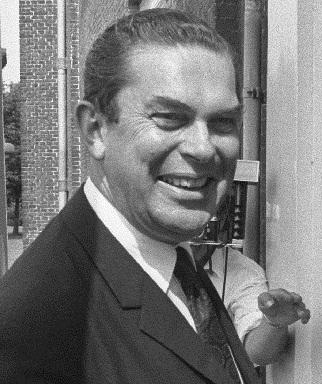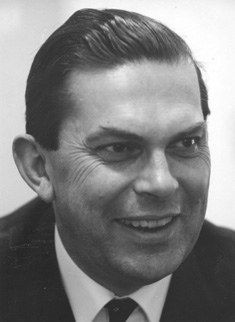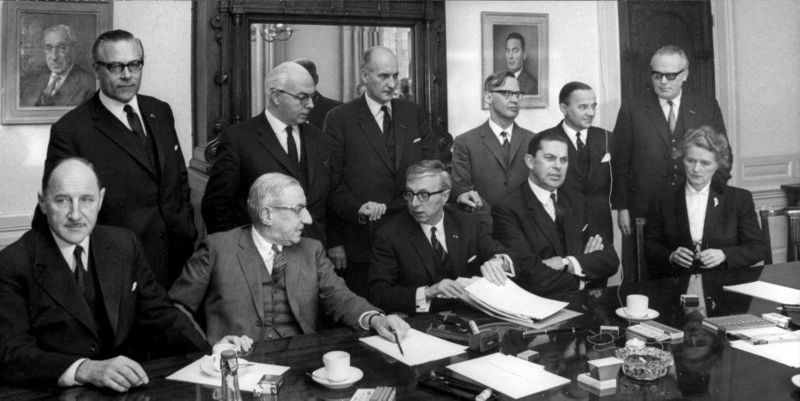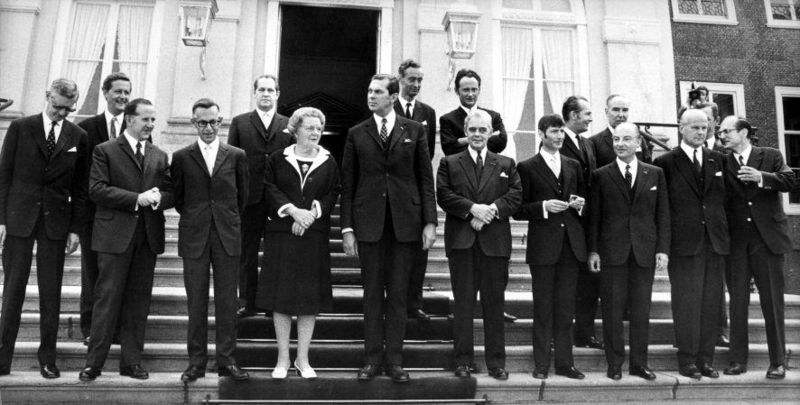<Back to Index>
- Orientalist Henry Creswicke Rawlinson, 1810
- Composer Bonifacio Domenico Pasquale Anfossi, 1727
- Prime Minister of the Netherlands Barend Willem Biesheuvel, 1920
PAGE SPONSOR


Barend Willem Biesheuvel (April 5, 1920 - April 29, 2001) was a Dutch politician of the defunct Anti Revolutionary Party (ARP) now merged into the Christian Democratic Appeal (CDA). He served as Prime Minister of the Netherlands from July 6, 1971 until May 11, 1973.
He previously served as a Member of the House of Representatives from November 6, 1956 until July 24, 1963. And a Member of the European Parliament from March 7, 1961 until July 24, 1963. He became Minister of Agriculture and Fisheries, Minister for Suriname and Netherlands Antilles Affairs and Deputy Prime Minister from July 24, 1963 until April 5, 1967 in the Cabinets Marijnen, Cals and Zijlstra. He became the Parliamentary leader in the House of Representatives from February 16, 1967 until July 6, 1971 and a Member of the House of Representatives from February 23, 1967 until July 6, 1971. Biesheuvel became Prime Minister of the Netherlands, leading the Cabinets Biesheuvel I and II. After his premiership, Biesheuvel remaind in active politics for a short period serving as the Parliamentary leader in the House of Representatives from November 30, 1972 until March 7, 1973 and again a Member of the House of Representatives from December 7, 1972 until March 7, 1973.
Barend Willem Biesheuvel was born on April 5, 1920 in
Haarlemmerliede in the Netherlands Province of North Holland.
After completing his secondary education at local schools, he graduated
in law at the Free University of Amsterdam in September 1945. For the
next two years Biesheuvel worked in Alkmaar as secretary to the Food Commissioner for the Province of North Holland.
In 1947 he became secretary to the Foreign Division of the Agricultural
Society (now the Agricultural Board). In 1952 Mr Biesheuvel became
general secretary of the Dutch Protestant Farmers and Market Gardeners
Union (CBTB) and in 1959 chairman of that organisation. From the same
year he was also a member of the Agricultural Board, the Labour
Foundation and the boards of the Centrale Raifeissen Bank and Heidemij.
Between 1956 and 1963 he represented the Anti Revolutionary Party in the House of Representatives (the lower house of parliament). From 1957 to 1961 he held a seat on the Consultative Assembly of the Council of Europe and from 1961 to 1963 in the European Parliament.
In
the successive administrations headed by Marijnen, Cals and Zijlstra
between 24 July 1963 and 5 April 1967 he was Deputy Prime Minister with
additional responsibility for matters concerning Suriname and the
Netherlands Antilles, and Minister of Agriculture and Fisheries. In 1967 he returned to the House of Representatives and became leader of the parliamentary Anti Revolutionary Party. During the same period he also chaired the Shipbuilding Board and the Committee on Government Information Reform. Finally, from July 6, 1971 to May 11, 1973, Biesheuvel was Prime Minister of the Netherlands and Minister of General Affairs in the government that bore his name.
Following
his political career, Biesheuvel went on to occupy many other positions
in the public and private sectors. Among other things, he was chairman
of the supervisory board of the National Investment Bank, a member of
the supervisory boards of OGEM and KLM, and chaired the working party
on the
Netherlands Antilles,
the national advisory committee on the relationship between the
electorate and policy making, the Provisional Council for Transport,
Public Works and Water Management and the Interministerial Coordinating
Committee on North Sea Affairs (ICONA). Barend Biesheuvel died in a
hospital in Haarlem after a long illness on 29 April 2001, he was 81.

